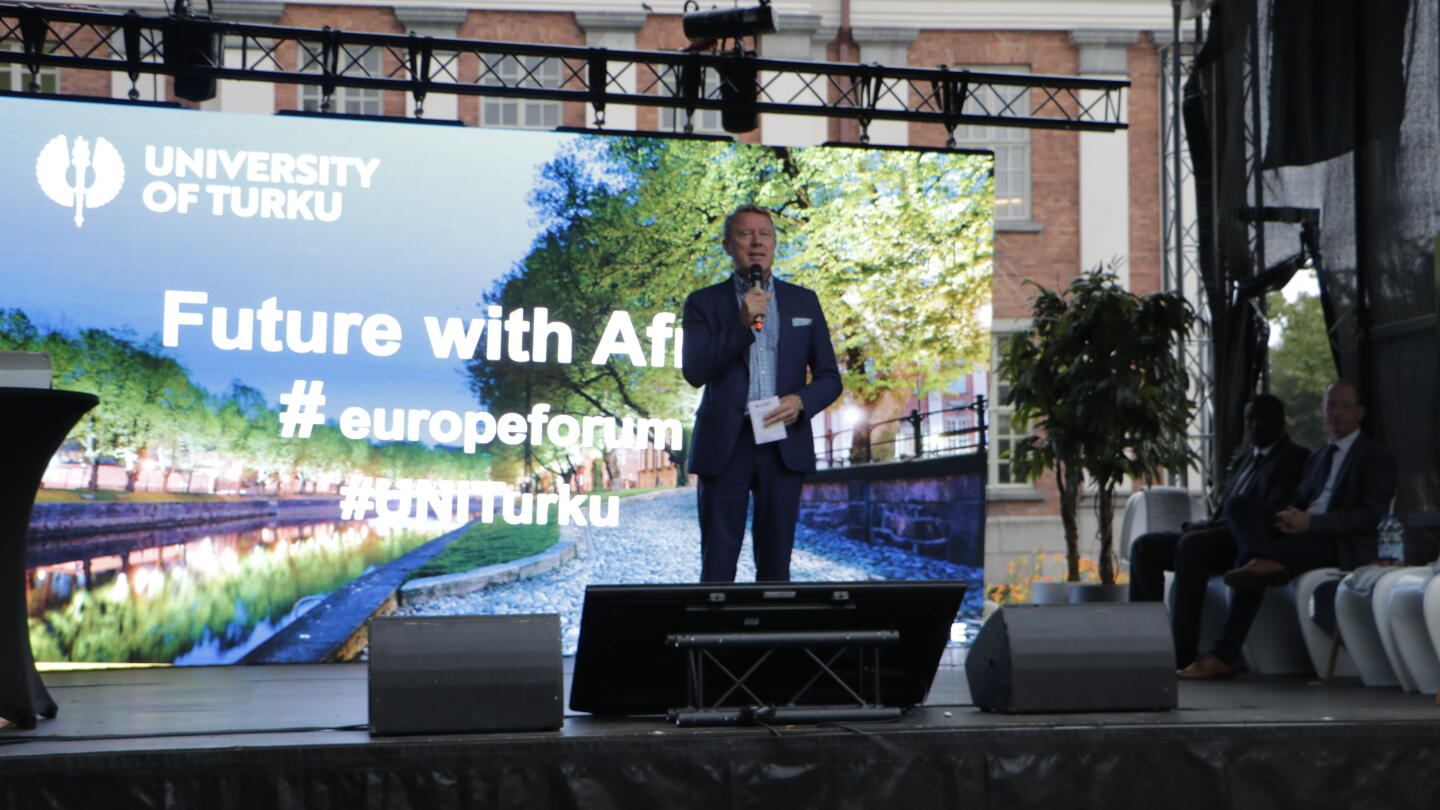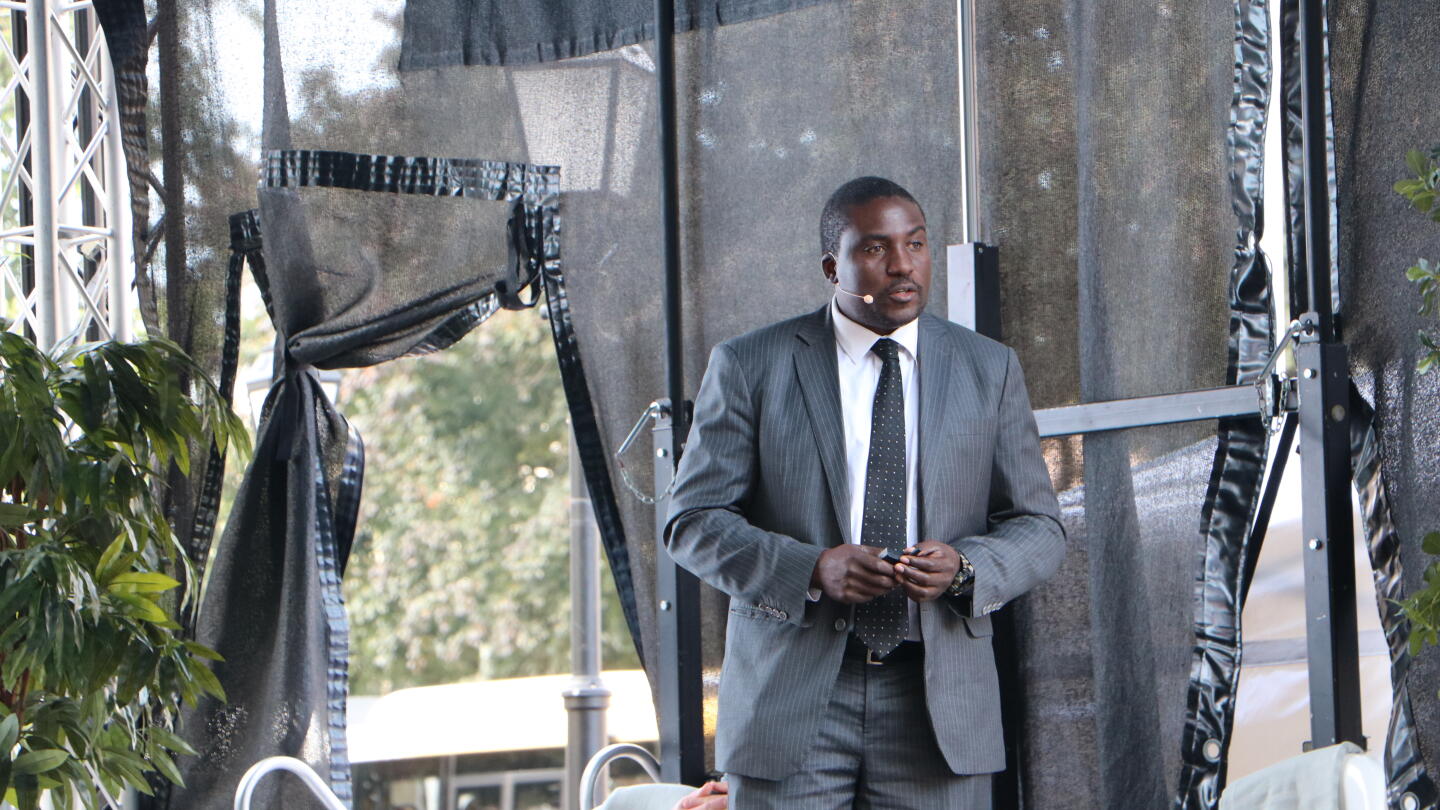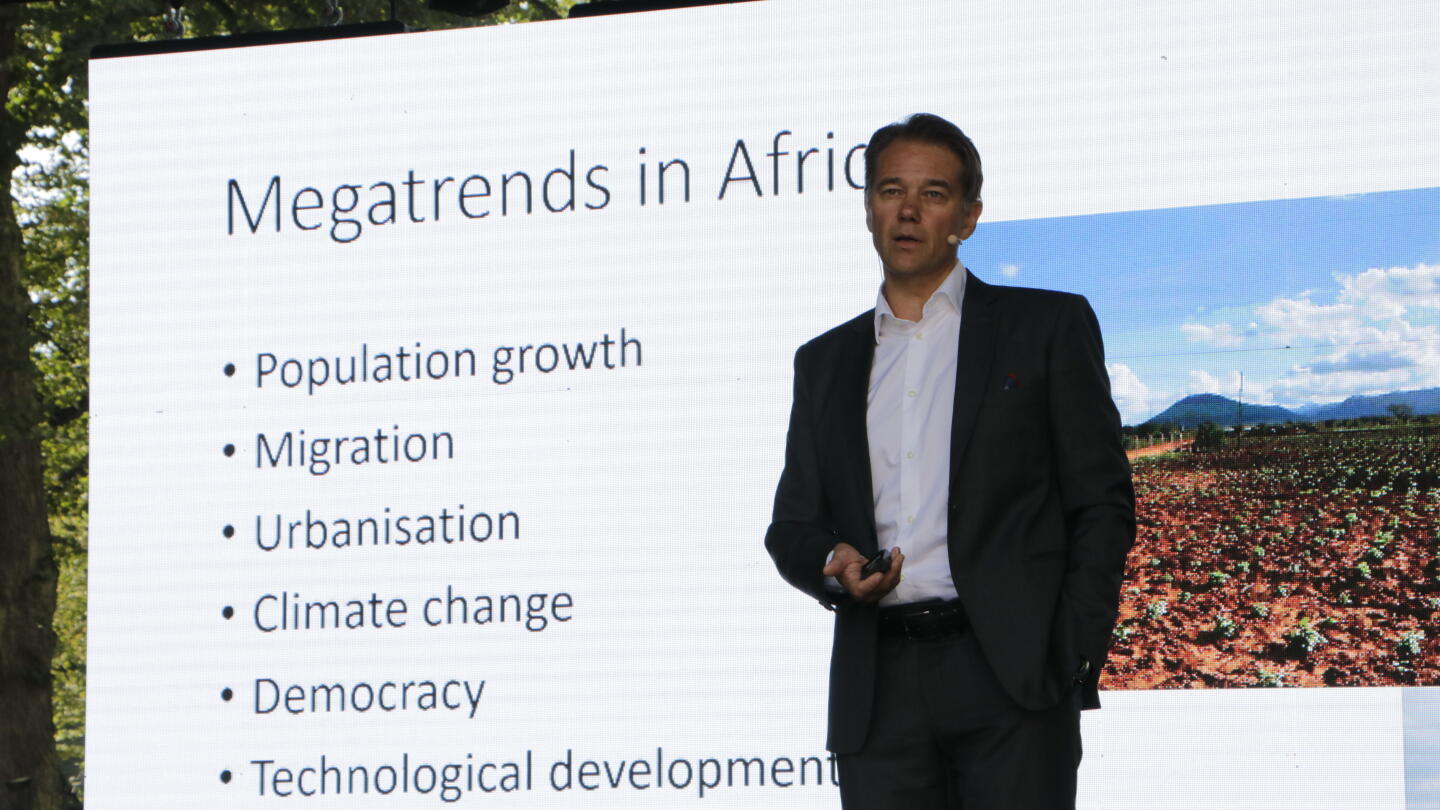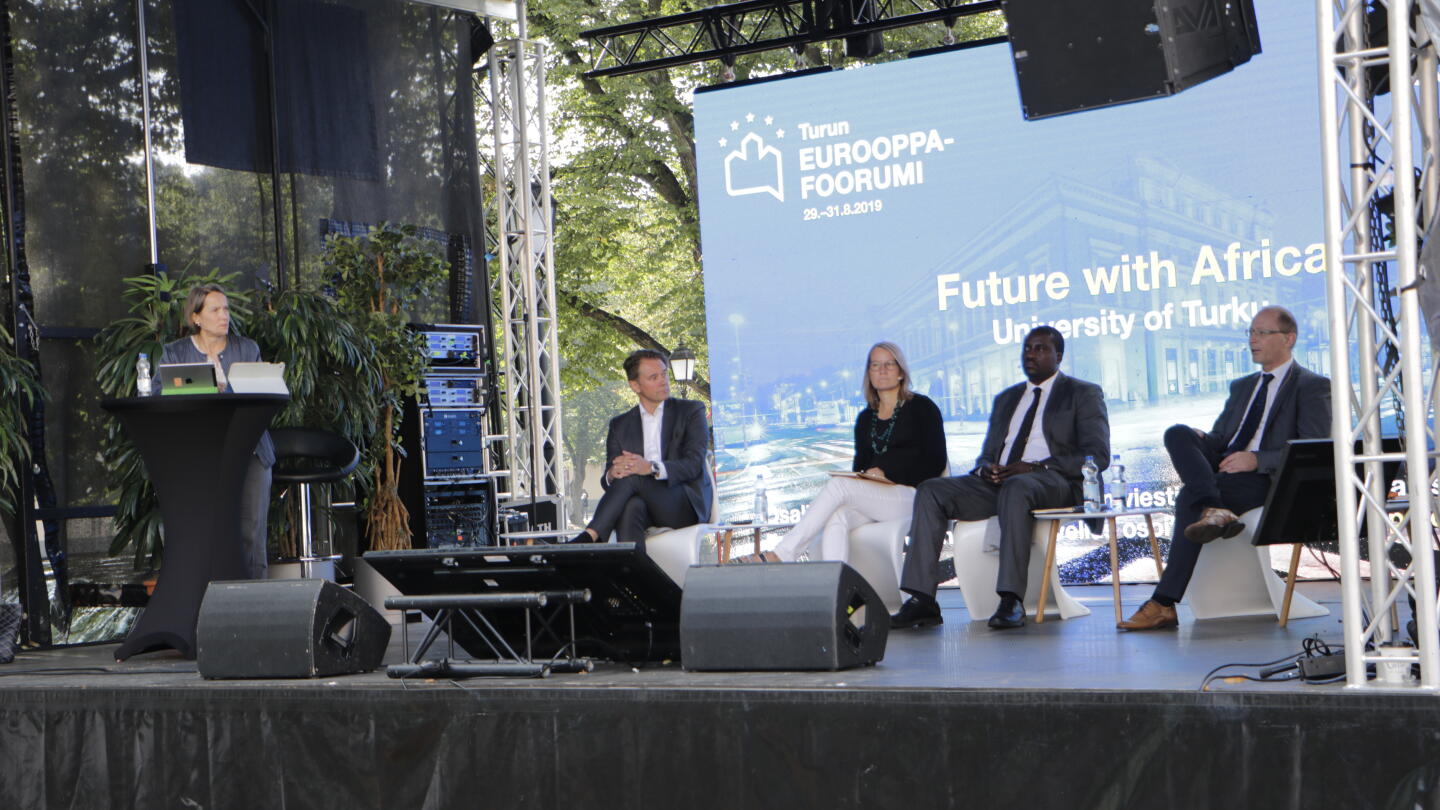The University of Turku organised the Future with Africa panel discussion at the Europe Forum Turku that covered the collaboration between Europe and Africa from the perspective of universities and research.
Rector of the University of Turku Jukka Kola opened the event. Kola told the audience about the recently started collaboration between the University of Turku and the United Nations Economic Commission for Africa (UNECA) that is based on the Memorandum of Understanding signed earlier this year. The goal is to advance the UN’s Sustainable Development Goal 9 on creating a sustainable industry, innovations, and infrastructures together.
– The University of Turku and the United Nations Economic Commission for Africa are now starting systematic and close collaboration. We will function as a catalyst in a collaboration platform that can be joined by other operators, too. The University of Turku has been an active operator in Africa for a long time, especially in Tanzania and Namibia, said Kola.
In his speech, Jukka Kola also highlighted that co-operation needs to be carried out perseveringly – and in collaboration between the public and private sectors in order for the results to benefit the whole society.
Jens Hoegel from the Directorate-General for Research and Innovation of the European Commission talked about the partnerships between the African Union and the European Union in research and innovations. Hoegel also reminded the audience of open funding calls and highlighted that research and science should come more boldly out from their own sector.
In his speech, Vice Chancellor of the University of Namibia, Professor Kenneth Matengu discussed the significance of the collaboration from the perspective of an African university. Matengu brought up e.g. the aspect that even though a considerable amount of private money is being invested in Africa currently, the companies’ research and development funds are not transferred for the research conducted at African universities. Matengu, too, underlined that companies should be engaged in conducting research.
– Most importantly, collaboration must be carried out together with Africa, not for Africa. For example, our presence is very small when comparing the number of scientific publications globally by continent. Even though research is being conducted in Africa, it is published elsewhere. This is something that we need to change together, said Matengu.
Matengu also brought up the need for strategic partnerships if Africa in order to develop the capacity.
Professor of Geoinformatics at the University of Helsinki Petri Pellikka discussed collaboration with Africa based on his long experience gained especially by working at the Taita Research Station. Pellikka presented different kinds of working models and development projects and stated e.g. that small universities are often agile partners in collaboration.
– The work needs to be engaged in and its results must also be followed.
Having worked with Tanzanians for a long time, panelist and Associate Professor in Digital Geospatial Research at the University of Turku and leader of the UTU Tanzania Team Niina Käyhkö also talked about collaboration with Africa from a practical perspective.
– When collaborating, we also need to be very clear about the reasons why we work in Africa with Africans. Africa is developing very fast, and we, too, need to be agile and make sure that we are doing the right thing.
The chair of the event and moderator of the panel discussion was Professor Liisa Laakso who works at the Nordic Africa Institute in Uppsala in Sweden. In addition, the event also included a video greeting by Minister for Foreign Affairs Pekka Haavisto.
Text and photos: Taru Suhonen
Translation: Aura Jaakkola





